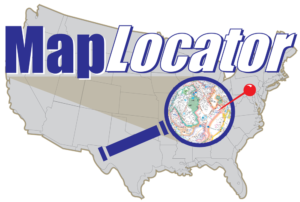Minnesota Sex Offender Registry
- What types of offenses require registration in Minnesota?
- How long are offenders required to register?
- What causes a registrant to be non-compliant?
- What are the consequences for offenders who fail to register?
- How can a non-compliant registrant return to compliance?
- Why doesn’t every offender on this web site have a probation officer listed?
- Why aren’t all non-compliant registrants listed on this web site?
- What is a risk level?
- Why doesn’t every registrant have a risk level?
- How can I find out more information about a registrant’s offense?
- Are registrants allowed to have contact with children?
- Can registrants live near a school or daycare center?
- Do the non-compliant registrants listed on this website have warrants for their arrest?
- What should I do if I have information regarding the whereabouts of a non-compliant registrant?
- What should I do if I know a non-compliant registrant who does not appear on this web site?
- What about all the other sex offender websites out there?
Q: What types of offenses require registration in Minnesota?
The following require registration:
- Criminal Sexual Conduct and Felony Level Indecent Exposure
- Kidnapping and False Imprisonment
- Soliciting a minor to engage in prostitution or sexual conduct
- Using a minor in a sexual performance
- Possession of pictorial representations of minors
Q: How long are offenders required to register?
- All registrants are required to register for a minimum period of 10 years or the duration of probation, whichever is longer.
- Some registrants are required to register for life.
- Convictions for Failure to Register violations result in 5 additional years of registration.
Q: What causes a registrant to be non-compliant?
- Failure to report changes in primary address, secondary addresses, employment, school or vehicles that are owned or operated.
- Failure to return Verification Forms.
- Registrants from other states who enter Minnesota to live, work, or attend school and fail to register with the law enforcement agency with jurisdiction where they are living, working or attending school.
- Registrants from other states who visit Minnesota for longer than 14 days and fail to register with the law enforcement agency with jurisdiction where they will be staying.
Q: What are the consequences for offenders who fail to register?
- Each conviction for Failure to Register results in an additional 5 years being added to the subject’s registration period.
- First time convictions are subject to a prison sentence of 1 year and 1 day.
- Subsequent convictions for Failure to Register may result in a minimum two year prison sentence.
- Any period of incarceration will result in the 10 year registration period starting over upon release from incarceration.
Q: How can a non-compliant registrant return to compliance?
- If still living in Minnesota, the registrant should report to their local law enforcement agency and complete the 3-page Change of Information Form. Registrants are encouraged to keep a copy of all forms completed during their registration period.
- If no longer, living in Minnesota, the registrant should contact the BCA POR Unit at 651-793-7070 for instructions on returning to compliance.
Q: Why doesn’t every offender on this web site have a probation officer listed?
- Registration periods are frequently longer than the probation period. For example a registrant who is sentenced to 5 years probation, has a 10 year minimum period of registration. This means that during the last 5 years of registration, the registration will not be supervised by a corrections agent.
- Additionally, lifetime registrants will register for a significant period of time when they will not be supervised by a corrections agent.
Q: Why aren’t all non-compliant registrants listed on this web site?
- Registrants who have been non-compliant for less than 30 days can not be displayed.
- Risk levels are assigned by the Minnesota Department of Corrections (DOC) not the Bureau of Criminal Apprehension (BCA).
- Risk Levels are assigned to registrants who are released from prison on or after January 1, 1997.
- Risk level one indicates the least likelihood to re-offend. Risk level two indicates a moderate likelihood to re-offend. Risk level three indicates high likelihood to re-offend.
- Information about Level 3 offenders is available on the DOC web site.
Q: Why doesn’t every registrant have a risk level?
- Approximately 75% of the offenders registered in Minnesota have never been assigned a risk level.
- Juvenile registrants do not receive risk levels
- Registrants sentenced to probation do not receive risk levels
- Registrant s who were released from a Minnesota prison prior to January 1, 1997, did not receive risk levels.
- Prior to July 1, 2005, risk levels could not be assigned to registrants from other states unless they were released to Minnesota directly from a prison in another state.
Q: How can I find out more information about a registrant’s offense?
- If you know the registrant’s full name and date of birth and the offense occurred in Minnesota, you can utilize the BCA’s free criminal history search.
- Detailed offense information can be obtained by requesting the Criminal Complaint and/or Sentencing Documents from the District Court in the county where the offense occurred. Note, the county may charge a fee for these documents.
Q: Are registrants allowed to have contact with children?
- There are no provisions in M.S. § 243.166, Minnesota’s registration law, which prohibit registered offenders from having contact with minors.
- Restricting contact with minors is frequently a condition of the registrant’s probation or parole; however, if the person is no longer on probation or parole, those restrictions are no longer effective. Inquiries regarding a registrant’s conditions of release should be directed to the registrant’s probation or parole officer.
Q: Can registrants live near a school or daycare center?
- There are no provisions in M.S. § 243.166, Minnesota’s registration law, which prohibit registered offenders from living in the vicinity of a school or daycare.
- Restricting a registrant’s residency can be a condition of the registrant’s probation or parole; however, if the person is no longer on probation or parole, those restrictions are no longer effective. Inquiries regarding a registrant’s residency restrictions should be directed to the registrant’s probation or parole officer.
- While there is not a State law regarding residency restrictions for registered offenders, some cities have passed local ordinances. Citizens with questions regarding their local ordinances should contact their local City Hall or Police Department.
Q: Do the non-compliant registrants listed on this website have warrants for their arrest?
- Some do, but not all.
- Minnesota law enforcement officials do not have the authority or jurisdiction to obtain warrants for offenders who registered an address in another state and became non-compliant after moving to the other state.
- Each local law enforcement agency handles the monitoring and tracking of the registrants in their community differently. When an agency discovers that an offender is no longer living, working or attending school at the registered address, they will frequently contact the POR Unit to request a Prosecution Packet (certified copies of the documents in the POR files).
- Local law enforcement agencies are encouraged to seek warrants for non-compliant registrants; however, sometimes there are investigative or prosecutorial reasons why a county attorney may decline to seek an arrest warrant.
- There does not need to be an active Failure to Register warrant for a law enforcement officer to arrest a non-compliant offender.
Q: What should I do if I have information regarding the whereabouts of a non-compliant registrant?
- You are strongly encouraged to submit tips regarding non-compliant registrants by following the links on this web site. You can remain anonymous when submitting tips electronically.
- If you prefer to submit your tip over the phone, you can do so Monday through Friday between the hours of 8:00 a.m. and 4:30 p.m. by calling 651-793-7070 or 888-234-1248 and asking to speak to a member of the Non-Compliance Team.
- If you have a tip on the location of a registrant and you believe that the offender presents an imminent danger, please contact the law enforcement agency where the offender can be located to report the tip.
Q: What should I do if I know a non-compliant registrant who does not appear on this web site?
- If you believe that you have information about a registrant who has moved and not updated his/her address information, please email us at BCA.POR.Websitequestions@state.mn.us .
- Because POR information is classified as private data, the POR Unit may not be able to respond to your email, but all information will be reviewed and followed up on as appropriate.
Q: What about all the other sex offender websites out there?
- The BCA advises the public to use extreme caution when utilizing registration information from non-governmental web sites. Several privately run web sites down load registrant information from official state registry web sites to create their own web pages. Before utilizing registration information from a privately run web site you should determine how often the information on the site is updated and what the source of the information is. If possible, verify the information from the official source before making employment, housing or other decisions.








